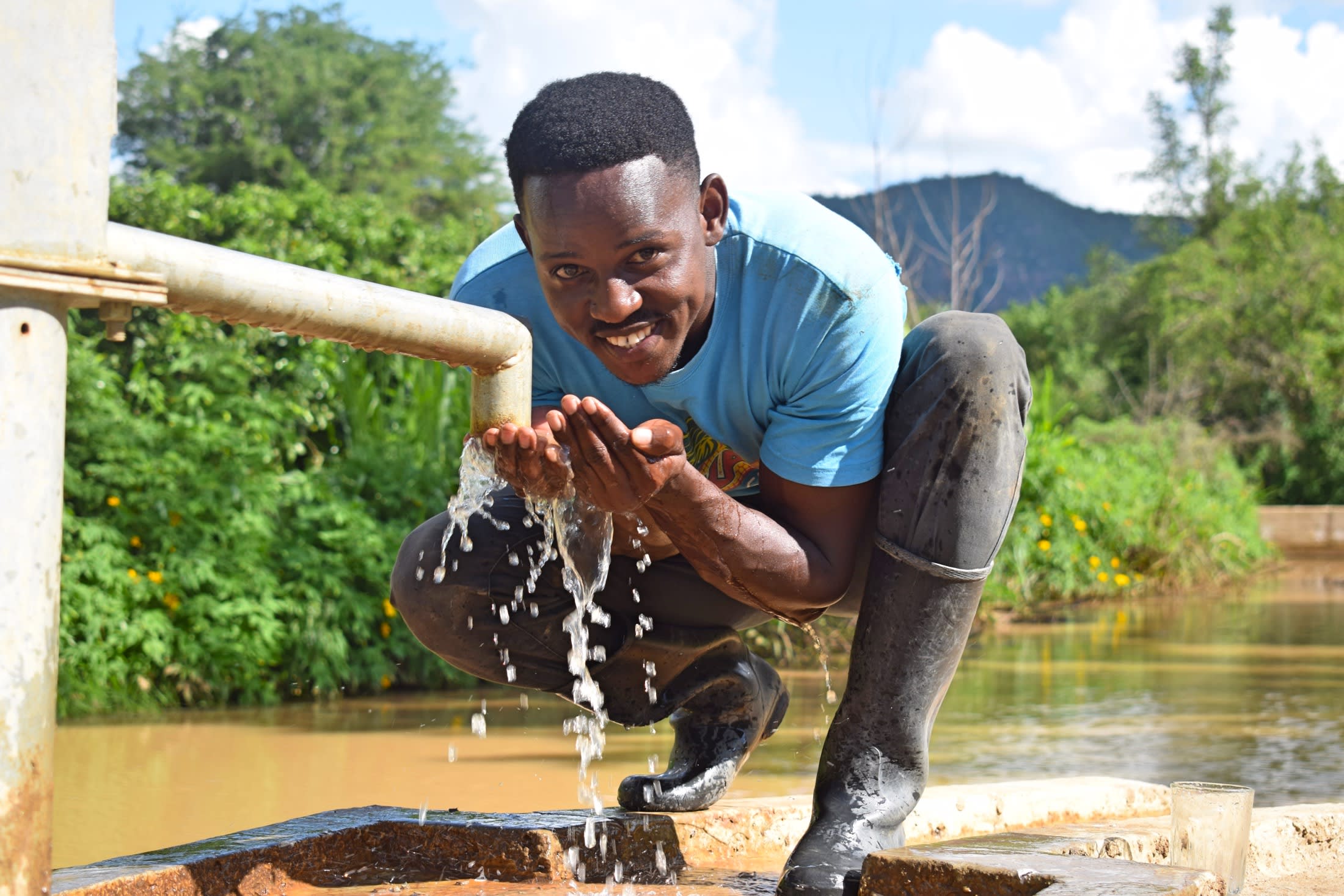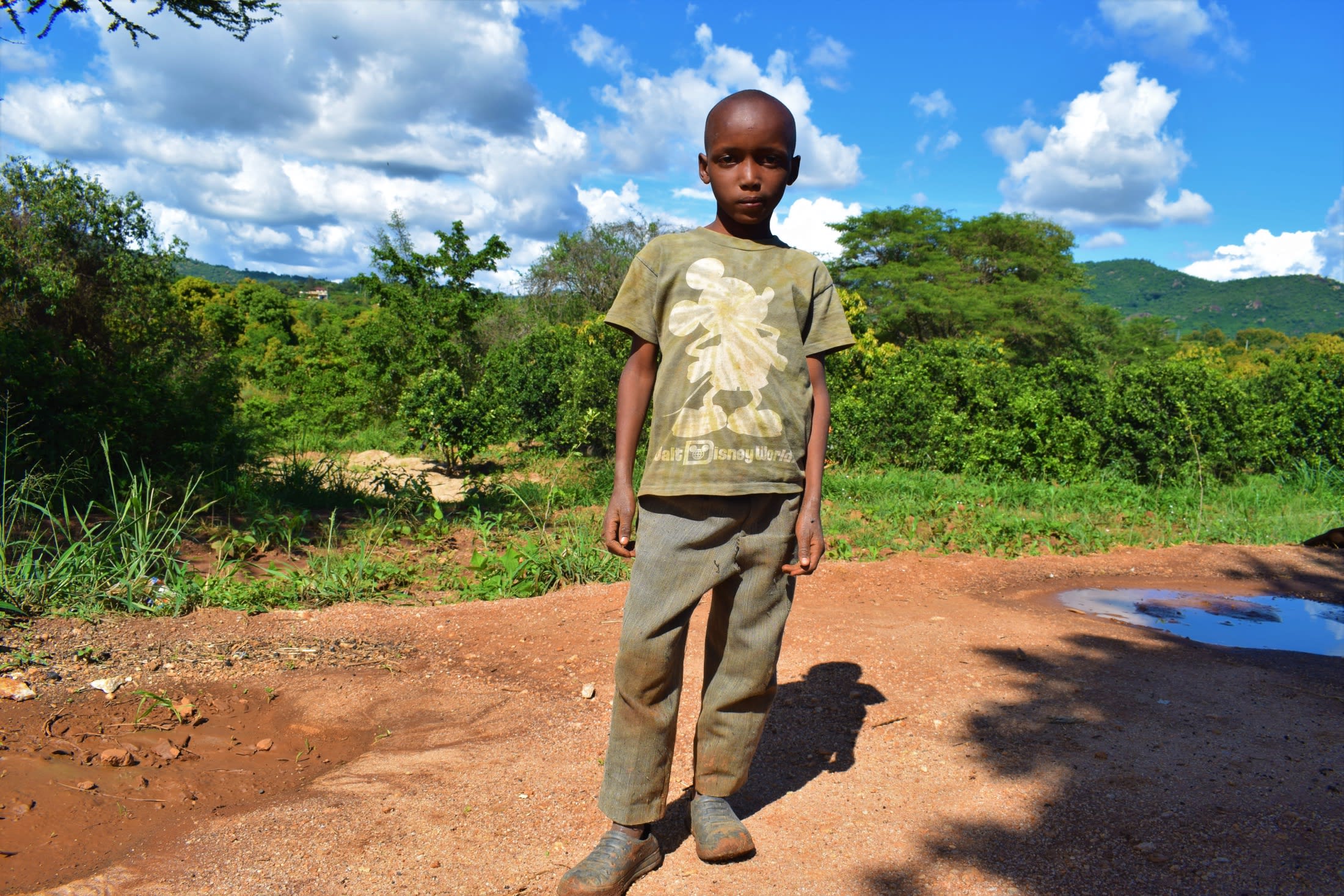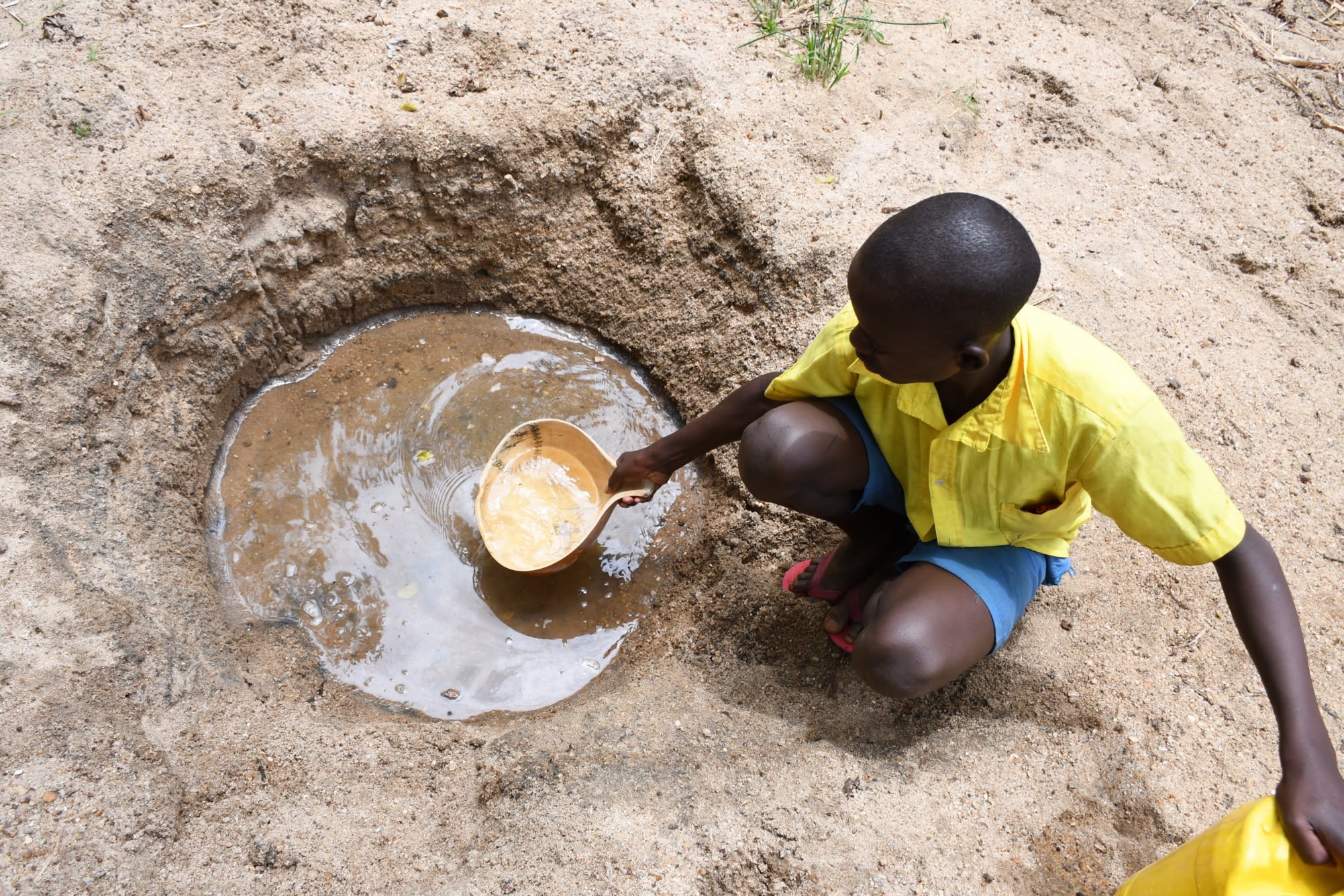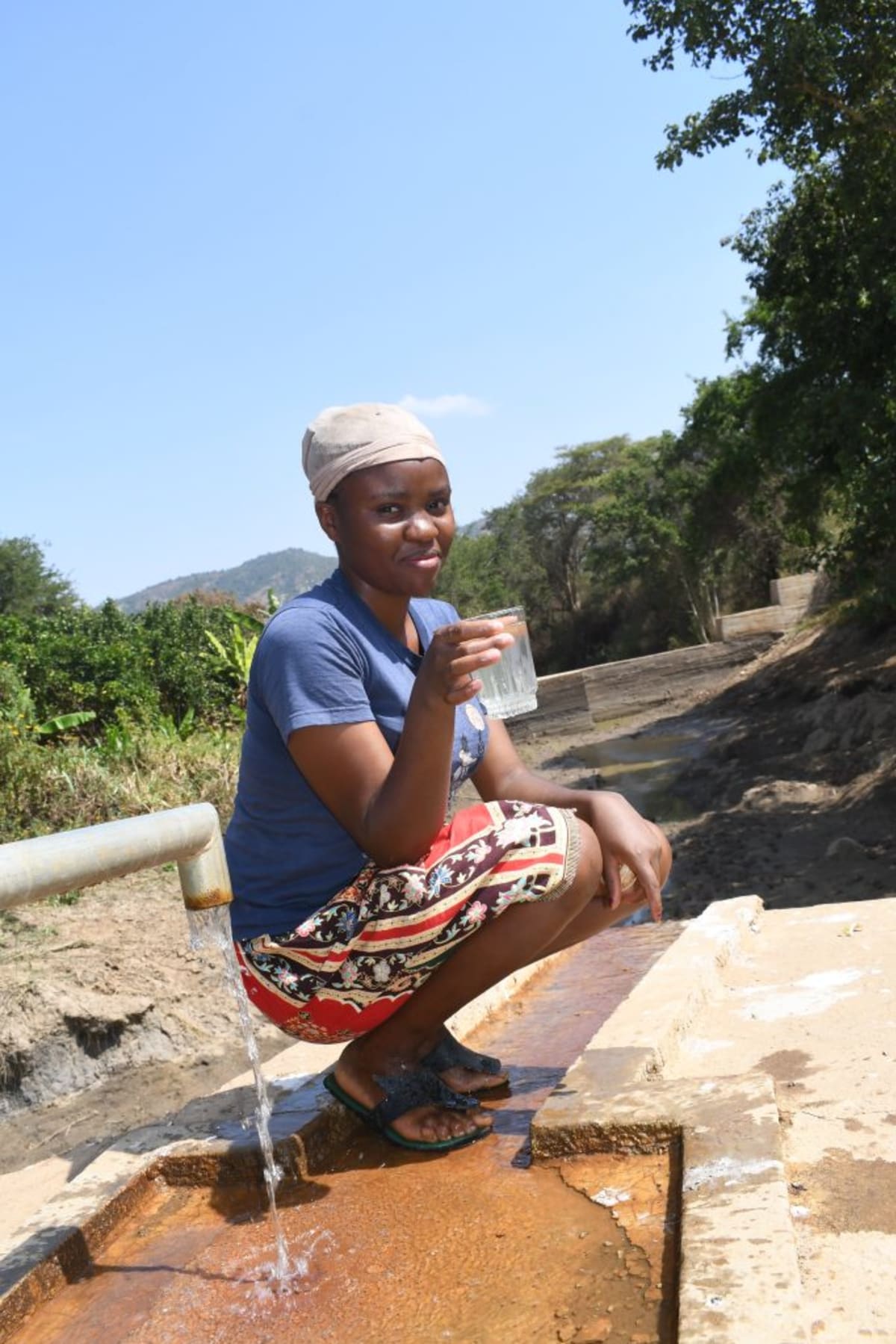During the wet season, the 1,296 community members of Nthonzweni have several options for water close to home. But in the dry season, their options disappear. This area receives little rainfall, so the community members' only option half of the time is to travel long distances to search for overcrowded, contaminated water sources, like the Ivoesyo River.
As a child, Francis K.'s only worries should be studying and playing. But as he explains, his days are dominated by the constant search for water. "I struggle a lot to fetch water. We only get water when there are rains. When there are no rains, I have to walk for long distances to fetch water at the river."
The journey to the river eats up more than two hours of Francis's time every day.
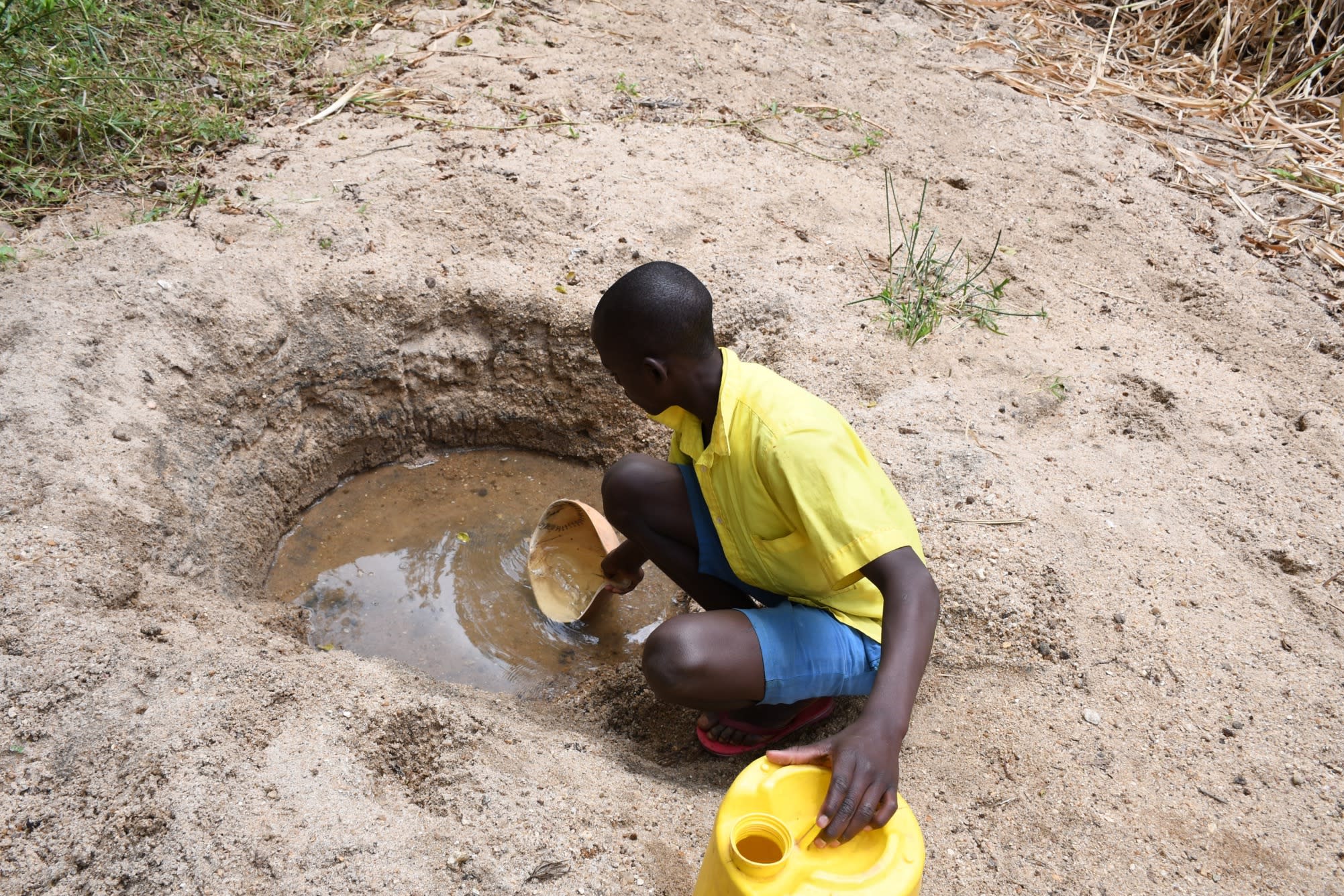
"By the time I get back home, I am very tired and I have to also do my homework," Francis continued (he's pictured above). "This often results in poor performance in school, as I have no time to study when I come home."
But time is not the only factor in Nthonzweni's water crisis. The water is open to all forms of contamination: farm chemicals, animal waste, and human waste. Due to the inadequate water supply, the community members are unable to sustain proper cleanliness, hygiene, and sanitation within their homesteads. Because of this, they report constant cases of typhoid, amoeba, and dysentery.
This problem is further aggravated by the community's inability to collect enough water for everyday uses, as 56-year-old farmer, Joel Mutua Kikumbi (pictured below), explained. "There is always inadequate water for use at home, either for washing clothes, bathing, cleaning the house/[dishes], drinking, and cooking, because the water source is far from my home."
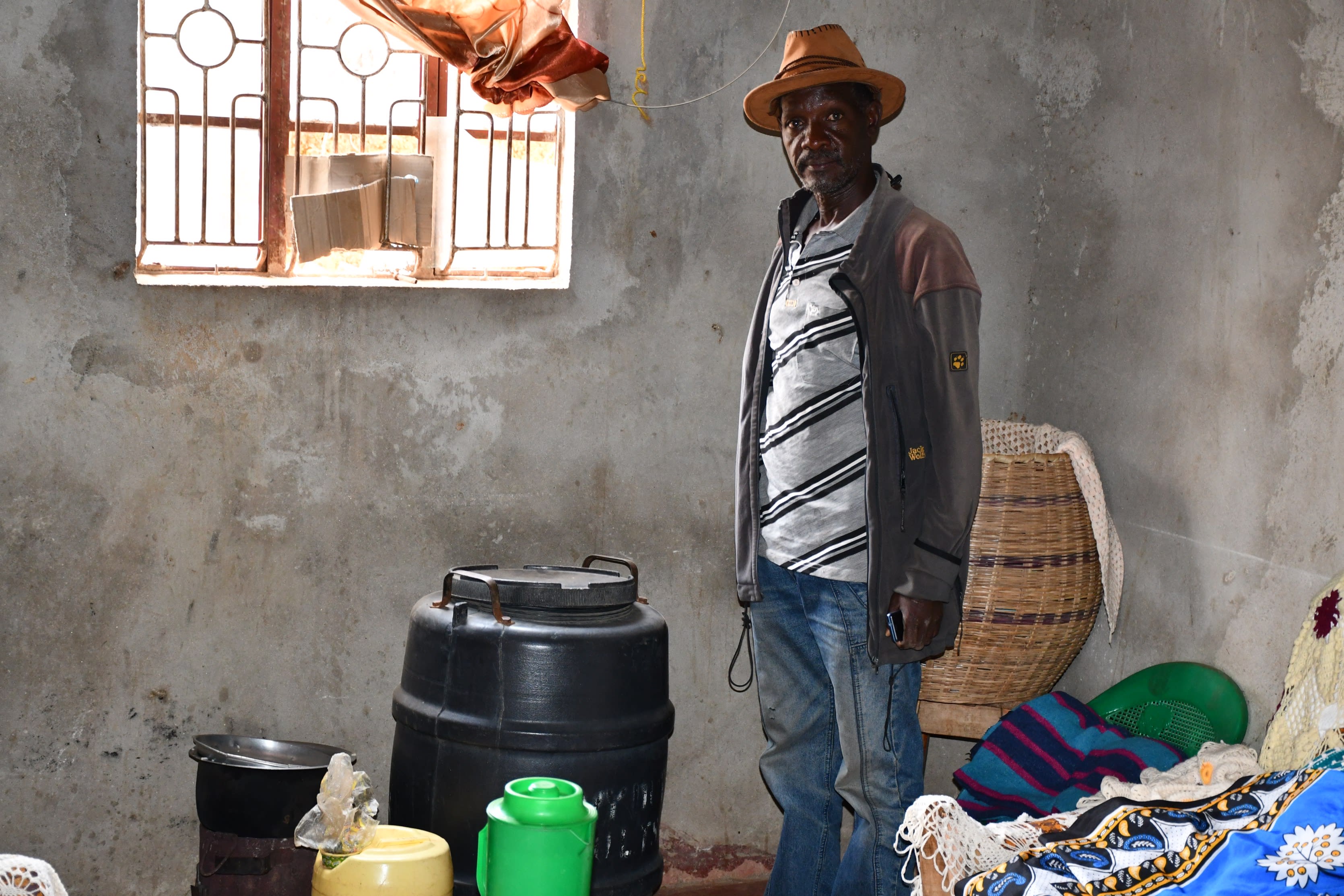
"Anytime I try farming, the crops wither and die," Joel continued. "I waste a lot of time walking to search for water. My livestock are not healthy as they do not get enough water for drinking."
What we can do:
Our main entry point into the community is the Kyeni Kya Nthonzweni Self-Help Group, which is comprised of households that are working together to address water and food scarcity in their region. These members will be our hands and feet in both constructing water projects and spreading the message of good hygiene and sanitation to everyone.
Reliable Water for Nthonzweni
Our main entry point into Nthonzweni Community has been the Kyeni Kya Nthonzweni Self-Help Group, which is comprised of households that are working together to address water and food scarcity in their region. These members will be our hands and feet in both constructing water projects and spreading the message of good hygiene and sanitation to everyone.
Hand-Dug Well
This particular hand-dug well will be built adjacent to a sand dam project, which will supply clean drinking water once it rains. We have supplied the group with the tools needed for excavation. With the guidance of our artisans and mechanics, the excavated well will be cased, sealed with a well pad, and then finished with a new AfriDev pump.
Excavation takes a month or more on average, depending on the nature of the rock beneath. Construction of the well lining and installation of the pump takes 12 days maximum. The well will be lined with a concrete wall including perforations so that once it rains, water will filter in from the sand dam.
This well will bring clean water closer to families.
New Knowledge
These community members currently do their best to practice good hygiene and sanitation, but their severe lack of water has been a big hindrance to reaching their fullest potential.
We will hold hygiene and sanitation training sessions with the Self-Help Group and other community members to teach about important hygiene practices and daily habits to establish at the personal, household, and community level. This training will help to ensure that participants have the knowledge they need to make the most out of their new water point as soon as water is flowing.
One of the most important topics we plan to cover is the handling, storage, and treatment of water. Having a clean water source will be extremely helpful, but it is useless if water gets contaminated by the time it is consumed. We will also emphasize the importance of handwashing.
We and the community strongly believe that all of these components will work together to improve living standards here, which will help to unlock the potential for these community members to live better, healthier lives.
We typically work with self-help groups for 3 to 5 years on multiple water projects. We will conduct follow-up visits and refresher trainings during this period and remain in contact with the group after all of the projects are completed to support their efforts to improve sanitation and hygiene.

 Protected Dug Well
Protected Dug Well
 Rehabilitation Project
Rehabilitation Project










